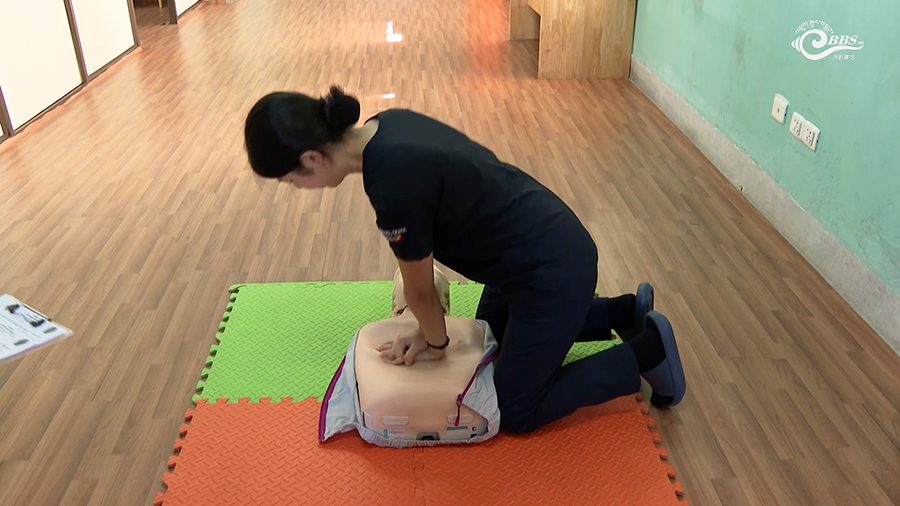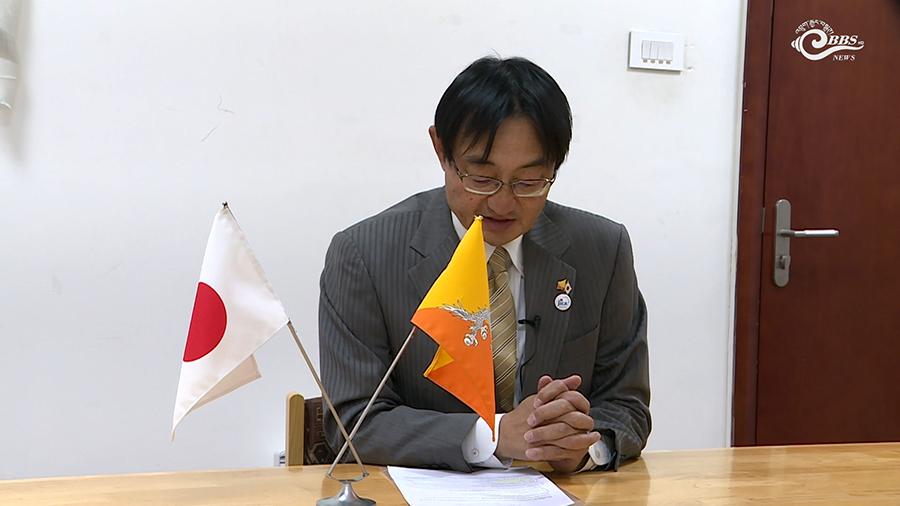 From neonatal to advanced cardiac life support, the Druk Sokchop or Bhutan Lifesavers programme has trained over 1,000 healthcare providers and 500 instructors. In the past, such specialised skills training required travel abroad, but it is now available within the country. Since 2020, the Japan International Cooperation Agency’s project to strengthen medical education has been equipping healthcare workers with essential emergency skills.
From neonatal to advanced cardiac life support, the Druk Sokchop or Bhutan Lifesavers programme has trained over 1,000 healthcare providers and 500 instructors. In the past, such specialised skills training required travel abroad, but it is now available within the country. Since 2020, the Japan International Cooperation Agency’s project to strengthen medical education has been equipping healthcare workers with essential emergency skills.
 Recently, healthcare providers from the National Referral Hospital underwent basic life support assessments at the Khesar Gyalpo University of Medical Sciences of Bhutan.
Recently, healthcare providers from the National Referral Hospital underwent basic life support assessments at the Khesar Gyalpo University of Medical Sciences of Bhutan.
 “For improving medical education and research, we have three main components. First, it is strengthening faculty teaching and research capacities. Second, is innovating and digitising medical education and third, is building the KGUMSB’s institutional management capacity,” said Kimata Yoichiro, Chief Representative, JICA Bhutan Office.
“For improving medical education and research, we have three main components. First, it is strengthening faculty teaching and research capacities. Second, is innovating and digitising medical education and third, is building the KGUMSB’s institutional management capacity,” said Kimata Yoichiro, Chief Representative, JICA Bhutan Office.
“Healthcare providers are supposed to have such lifesaving skills, but without this kind of simulation centre and programme like Druk Sokchop, it is very difficult to reach every health worker in the country. So, with this programme and simulation centre, it has really benefitted people in the country,” said Tshewang Rinzin, Associate Lecturer, Khesar Gyalpo University of Medical Sciences of Bhutan.
The Centre for Simulation-Based Training, opened in 2022, gives medical professionals and the supporting staff hands-on experience in handling real-life emergencies.
Although still in its rollout phase, the programme is already showing positive results.
“It has helped me in trying to intervene during cardiac arrest so that prompt intervention can save somebody’s life. So, it has helped me in benefiting the community as a nurse by trying to save lives,” said Sonam Yangchen, Clinical Nurse, JDWNRH.
“I have become more competent and gained valuable skills through the training. The skills I have acquired can also be imparted to other healthcare workers. Moreover, regardless of the place, if an emergency arises, I can respond effectively and lend a helping hand,” said Yeshi Dema, Instructor, Simulation Lab, Khesar Gyalpo University of Medical Sciences of Bhutan.
With support of Nu 270 M from JICA, similar simulation centres have been established at the Gelephu Central Regional Referral Hospital and the Monggar Eastern Regional Referral Hospital.
“We have already recognised the significance of the shortage of health professionals nationwide. That is why human resource development is quite significant for increasing the number of health professionals. So, KGUMSB’s function is too crucial for human resource development in Bhutan,” said Kimata Yoichiro, Chief Representative, JICA Bhutan Office.
The programme offers 12 Bhutan-specific emergency response courses and supports remote learning nationwide through an e-learning platform.
While the Bhutan Lifesavers programme is primarily for healthcare professionals, basic life-saving skills such as first aid are being taught in organisations outside the health ministry, empowering more people to respond effectively in emergencies.
Kelzang Chhophyel
Edited by Sonam Pem









